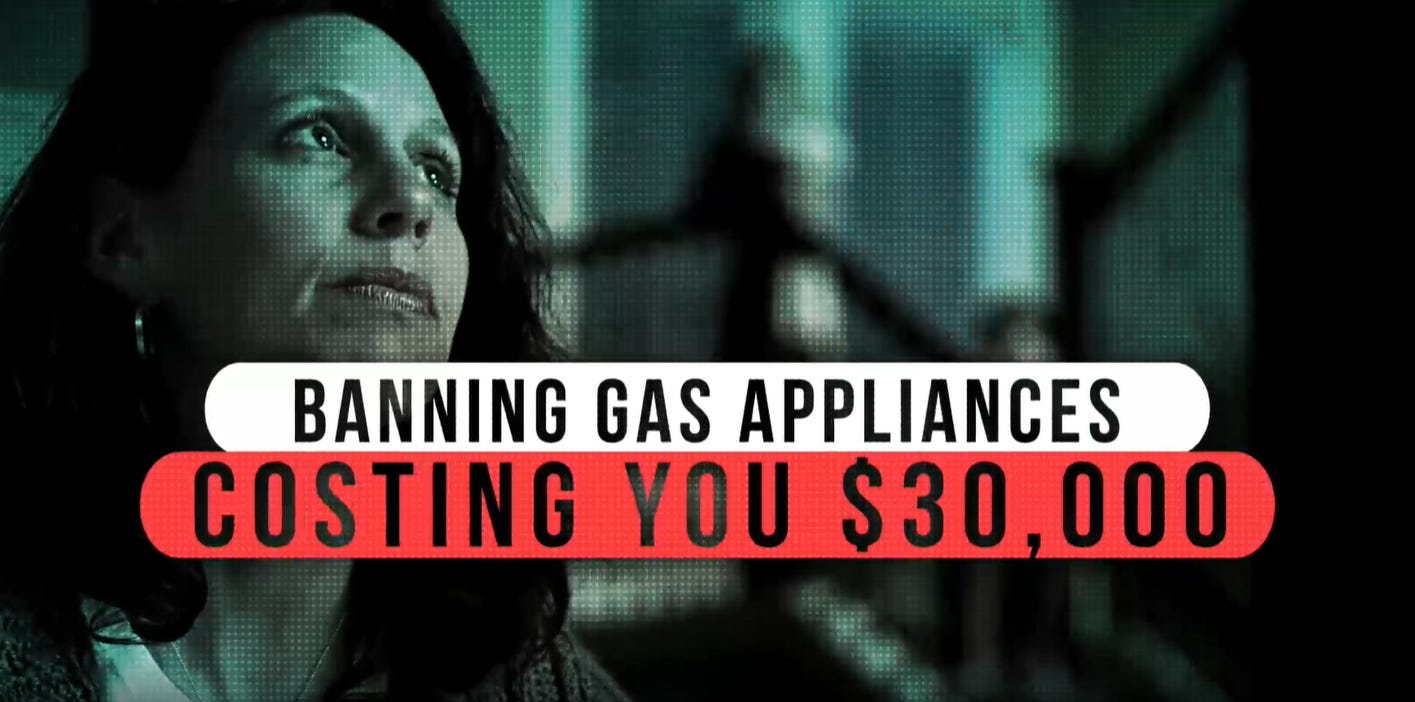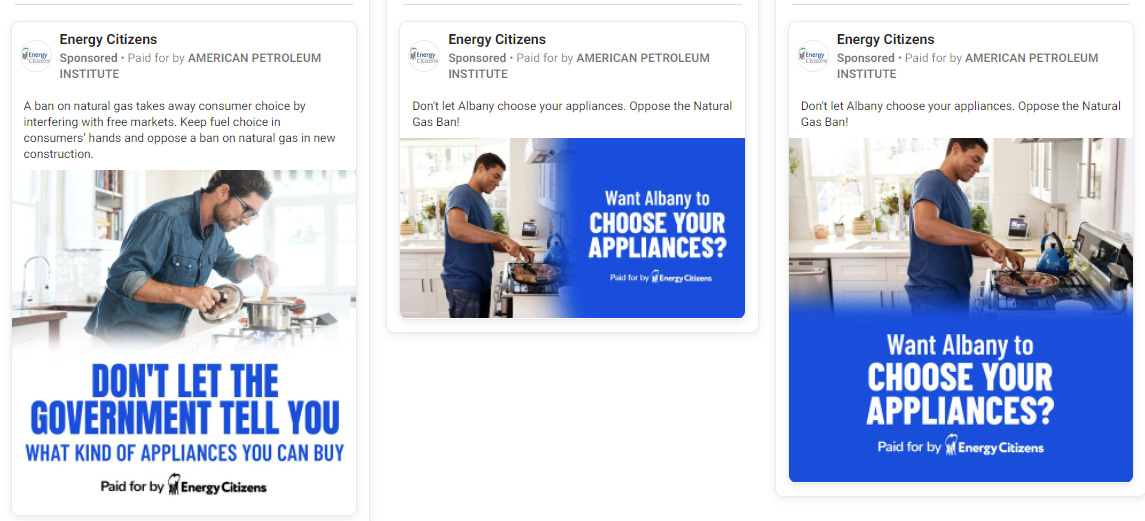New York is on the brink of historic climate action. One man stands in the way.
Most people think of cars and power plants as significant sources of greenhouse gas emissions. So if the world wants to combat climate change, we need to clean up transportation and power generation. That's true. But there is another major contributor to climate change that tends to fly under the radar: buildings.
"Buildings account for twenty-eight percent of the United States' energy use and greenhouse gas emissions," according to the U.S. Energy Information Administration. In New York State, buildings account for 32% of greenhouse gas emissions, making it the state's single largest source.
A bill introduced in the New York State legislature last November, the All-Electric Building Act, would begin to tackle this problem by requiring new construction that is seven stories or less to be fully electric by 2024. (There are some limited technical exceptions.) If enacted, new buildings could not use gas appliances or gas heat. Buildings taller than seven stories would have to meet the same standard by 2027.
The impact of this legislation, which mirrors a law enacted in New York City in December, would be dramatic. A March 15 report by the Rocky Mountain Institute found requiring all-electric new construction statewide would "save an additional 4 million metric tons of CO2 by 2040 beyond the reductions already expected from NYC — the equivalent of keeping 870,000 cars off the road for one year."
The policy is essential if New York plans to meet its climate goals, which call for "an 85% emissions reduction by 2050 and 40% in emissions reductions by 2030." (Meeting those goals will also require New York to generate a larger percentage of its electricity from clean sources.) In addition to the climate benefits, moving to all-electric buildings "will improve air quality, boosting public health."
A requirement for all-electric new construction in New York state could serve as a national model and be adopted by other states looking to address climate change. The proposal, however, faces aggressive opposition from the fossil fuel and construction industries. They have launched a well-funded astroturf campaign, "New Yorkers for Affordable Energy," to attack the requirement for all-electric new construction.
The policy received a significant boost in January, however, when Governor Kathy Hochul (D) included a version of the gas ban for new construction in her budget proposal. Hochul's initial plan differed somewhat from the All-Electric Building Act because it would have pushed back the all-electric requirement for new construction, including buildings seven stories or less, to 2027.
Ultimately the state budget requires an agreement between the Governor, the Assembly, and the Senate. According to two sources familiar with the state of the negotiations, Hochul and the State Senate have agreed on a budget that includes language very similar to the All-Electric Building Act. The only person standing in the way is Assembly Speaker Carl Heastie (D).
Peter Sikora of New York Communities for Change, an advocacy group championing the gas ban, told Popular Information that Heastie is currently "holding up" the agreement and "at this point, standing up for the oil and gas lobbyists."
A decision about whether to include a version of the All-Electric Building Act in the budget is expected imminently. The New York State budget is "due" on April 1 and is already late.
Corporate astroturf coalition opposed to climate plan
"New Yorkers for Affordable Energy" is actually a coalition of corporate interests. Among the group's members are fossil fuel organizations like the American Petroleum Institute (API), utilities like National Grid, and unions associated with the construction industry like the New York State Laborers.
Last week, the group launched a television ad that seeks to drum up opposition to the proposal through misinformation. The ad claims that the bill would "ban gas stoves and furnaces… sticking you with a $30,000 price tag to replace them." The bill actually applies only to new construction so no one would be required to replace their stove or furnace.
While the ads falsely claim homeowners would be forced to pay for tens of thousands in new appliances, moving to all-electric buildings could save ratepayers money. It would ultimately eliminate "construction of costly new gas lines to new buildings, which will save ratepayers hundreds of millions of dollars on their utility bills."
At least one member of the coalition, API, has spent extensively on Facebook ads opposing the All-Electric Building Act. The ads are purchased by API on behalf of another front group, Energy Citizens.
"A ban on natural gas takes away consumer choice by interfering with free markets," one of the ads claims. "Keep fuel choice in consumers’ hands and oppose a ban on natural gas in new construction."
Several members of "New Yorkers for Affordable Energy" are financial patrons of Heastie.
According to the New York State Board of Election data, members of "New Yorkers for Affordable Energy" have donated at least $99,000 since 2021 to committees controlled by Speaker Heastie — Heastie's campaign committee, Speaker Heastie PAC, and the Democratic Assembly Campaign Committee (DACC).
This includes a $50,000 contribution to the DACC by the New York State Laborers on December 31, 2021. The DACC has received another $127,300 from the New York State AFL-CIO. While the New York State AFL-CIO is not listed as a member of the "New Yorkers for Affordable Energy" coalition, it is the parent organization of the Building & Construction Trades Council of Greater New York, which is a member.
Heastie confirms opposition to requiring all-electric new construction in budget
Popular Information reached out to Heastie and asked if he supported including a phase-out of gas in new construction as part of the budget agreement. A spokesperson confirmed Heastie opposed including the provision in the budget.
"We didn't include policy in our budget proposal," Michael Whyland, communications director for Heastie, told Popular Information. "The fact is, whatever anyone wants to believe, we are trying to get a budget done that primarily focuses on the financial issues facing the state and there is still a second half of the session."
The New York budget, however, will include legislative language that is unrelated fiscal policy. Heastie's own budget proposal included a variety of policies related to energy and the environment, as detailed by Politico New York reporter Marie French.
Asked whether Speaker Heastie would support the All-Electric Building Act as standalone legislation, Whyland was non-committal. Heastie "supports whatever direction the conference wants to take," Whyland said.







Feels weird to not be talking about Joe Manchin when discussing one man standing in the way of substantive legislation to address the effects of climate change, but this is a good reminder of how committed the fossil fuel industry is to thwarting progress up and down the levels of government.
Thanks for calling out Heastie, Judd. This is the only way to apply pressure to climate criminals.